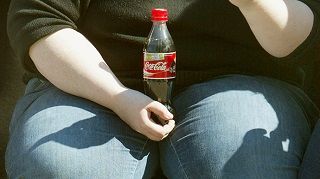Coca Cola, Sustainability, and the Rise of Cleantech

The company regularly extracts up to one million liters of water per day in some areas in India. The result has been sharp drops in groundwater levels, resulting in severe water shortages for tens of thousands of people.
Coca-Cola’s water use ratio in India is 4 to 1 – that is, 75% of the freshwater it extracts is turned into wastewater. The company has indiscriminately discharged its wastewater into the surrounding fields, severely polluting the scarce remaining groundwater as well as soil.
The impacts being felt by the communities who live around Coca-Cola’s bottling plants are no small matter. In a country where over 70% of the population still makes a living related to agriculture, taking away the water and poisoning the remaining water and the soil has had dramatic consequences.
Thousands of farmers across India are struggling to make a living because of crop failure as a result of the water shortages created by the Coca-Cola company.
But why pick on Coke? Only to note that they’re an example of a hugely profitable corporation (over $6 billion in annual earnings) whose product is uniformly harmful for the inhabitants of Earth, and, more to the point, that we live in a time in which we have the potential to change all this.
That’s correct; it’s quite possible that, as the world comes to realize that it has come face-to-face with some truly catastrophic situations with respect to long-term environment damage and human health issues, that the economics of the 21st Century will be defined by cleantech, rather than by selling a poison promoted a “can of happiness.”
Imagine a day when the biggest industries are the creation of energy efficient buildings and transportation solutions, the deployment of renewable energy, and sustainable agriculture. There’s a lot of work to be done here, and meeting these challenges will create enormous economic opportunities. So let’s start now — and splurge.

Thanks for posting this. I was aware of the link between soda and diabetes, obesity, etc., and of all the plastic trash Coca-Cola produces (and is not responsible for cleaning up, at least not here in the US), but I didn’t realize that the manufacturing of the product had such dire implications for water and soil. Terrible.
I stopped drinking soda at home quite a while ago. I was tired of the stuff that was in it and the waste of the bottles and transportation. I actually stopped drinking Coke when they came out with “new Coke”. It only lasted a year but during that time I got new Coke instead of “classic Coke” at fast food restaurants a bunch of times and never trusted it again.
As for drinking soda in general as I said, I stopped a while ago for the above reasons. I started drinking home made sun tea but quickly realized it generated bacteria very fast because there is bacteria in the water and the tea and of course you can’t wash the tea. I also didn’t like the idea that I was taking cold water, making it hot in the sun which speeds up the bacteria growth and then expending energy to make it cold in the fridge. I then started making “refrigerator tea” where you just take a gallon of cold water from the spigot, add 10 tea bags and stick it in the fridge for 24 hours then add sugar and lemon juice. It is the same as any other iced tea but just takes longer to make so planning or routine is required. It is better from the bacteria standpoint as it never gets warm so the bacteria take much longer to grow. At this point I am down to just plain old tap water. I can honestly say I never understood the whole “bottled water” thing. They pump it out of the ground somewhere that probably cannot afford to lose it, stick it in a plastic bottle that was made with oil products and gets thrown out or recycled after it’s one use, chemicals leach out of the plastic into the water while it is transported generally thousands of miles on a large ship burning oil for it’s propellant and then trucked which burns more fuel to the store that sells it to you and you then take it home in your car which is probably burning gas. I think I can honestly say I have not had more than a dozen bottles of water in my life. I just never got that whole thing.
Re: bottled water, I totally agree. I’m always amused that the producers of most of the conferences I attend on clean energy and sustainability offer bottle watered, and then serve hunks of beef the size of grapefruits for lunch. They offer the same food and beverage options to events for environmentalists as they do for high school football coaches. That’s not sound thinking, IMO.